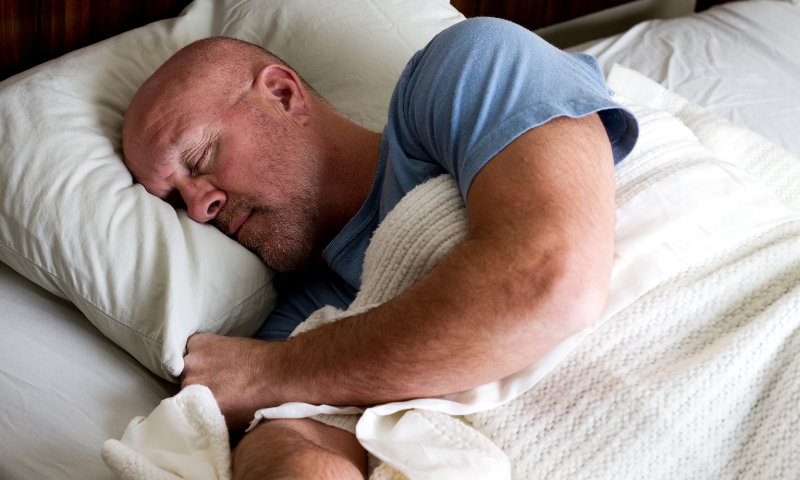Oh, the enchantment of autumn! The cool breeze, the rustling leaves, the pumpkin spice lattes… However, with the shorter and more action-packed days, we can often end up sleeping less than our bodies demand. Did you know that this could affect your weight-loss journey? Yes, you read that right! Poor sleep habits and hygiene can impact your weight.
In this blog post, we will discuss the role of sleep in weight-loss, especially during the darker days of fall and winter. So, grab a cup of tea and read on!
Understand the Science Behind Sleep and Weight-loss
Different sleep stages have different effects on our weight. The deep sleep phase, also known as slow-wave sleep, is critical for maintaining our metabolic health. During this stage, the body releases growth hormones that aid in muscle development, tissue repair and fat burning. Furthermore, several studies suggest that sleep-deprived individuals tend to overeat, especially high-calorie and high-fat foods. This may be because sleep deprivation disrupts the balance of hormones that regulate hunger and fullness, leaving us feeling hungrier than usual.
How Shorter Days Affect Sleep Hygiene
As fall settles in and winter approaches, we get less exposure to sunlight, which can disrupt our circadian rhythm, making it harder for some people to fall asleep at night. Additionally, as daylight fades earlier, our bodies produce more melatonin, the sleep hormone, which can make us feel more sluggish and drowsy. All of this can lead to reduced physical activity and a tendency to snuggle under a cozy blanket, binge-watching our favorite TV shows. However, we need to make a conscious effort to establish a healthy sleep routine to maintain our circadian rhythm and support our weight-loss goals.
How Poor Sleep Habits Hurt Your Weight-loss Goals
Poor sleep habits, such as an irregular bedtime, late-night snacking and excess screen exposure, can have a significant impact on your weight-loss journey. Lack of sleep can affect insulin sensitivity, causing your body to store more fat and make it harder to lose weight. To achieve your weight-loss goals, prioritize your sleep hygiene just as much as your diet and workout regimen.
Tips for Building a Healthy Sleep Routine
- Maintain a regular bedtime and wake-up time, even on weekends.
- Avoid electronic devices at least an hour before bedtime to prevent the suppression of melatonin production.
- Read a physical book or take a warm bath to relax your mind and body before sleep.
- Create a comfortable and dark sleep environment to promote quality sleep.
- Limit caffeine intake, especially in the late afternoon or evening, as it can interfere with your ability to fall asleep.
- Avoid heavy meals close to bedtime as they can disrupt digestion and make it harder to fall asleep.
In conclusion, the role of sleep in weight-loss cannot be overstated. Shorter days and darker nights in the fall and winter can affect our sleep hygiene, but with a conscious effort, we can build a healthy sleep routine and support our weight-loss goals. Prioritize your sleep by maintaining a regular bedtime and wake-up time, avoiding electronic devices before bedtime, and ensuring that you get enough deep sleep. With mindful attention to your sleep habits, you can achieve a healthier body composition and improve your overall health.






